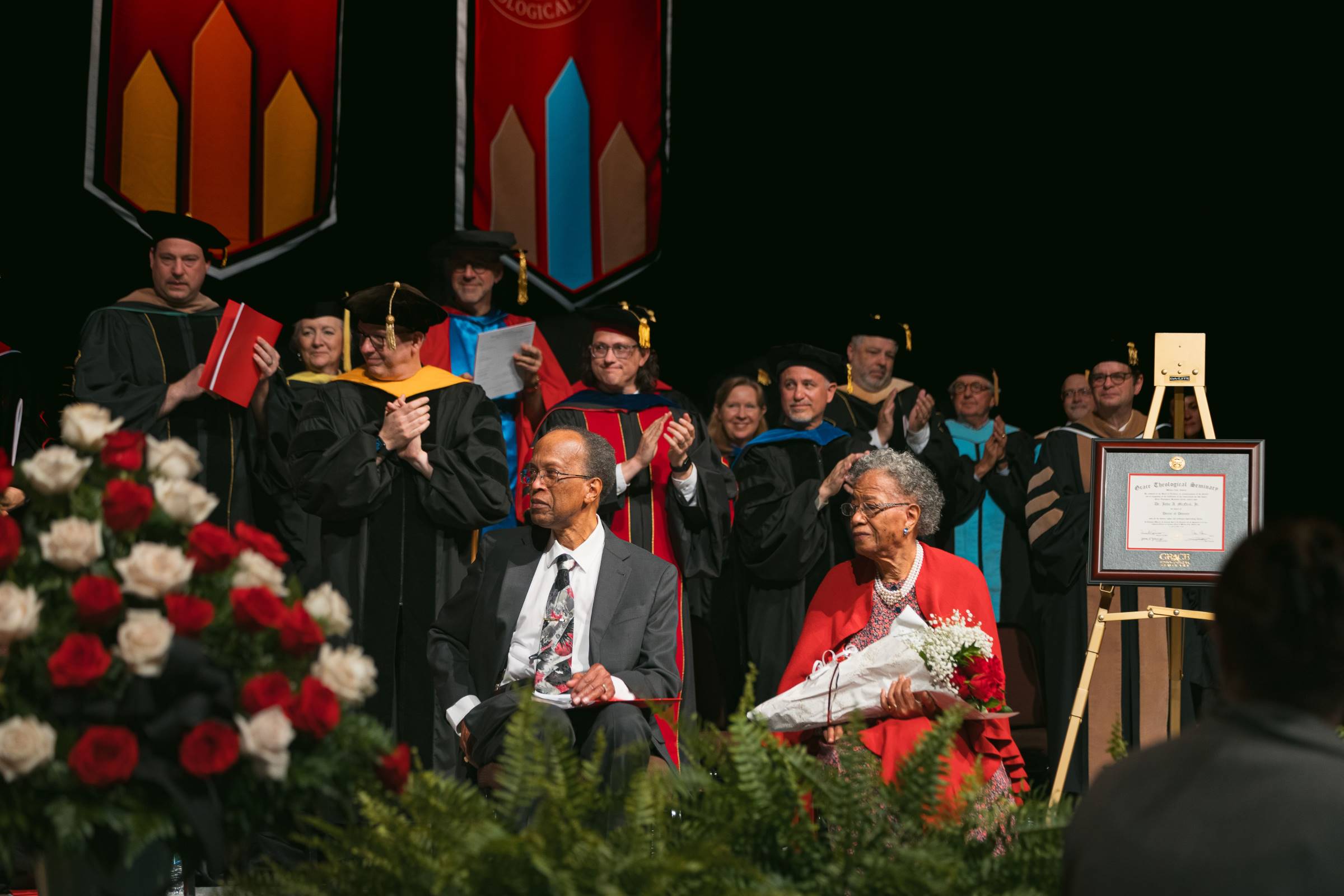June 2, 2023
Whatever Your Path, A Theological Seminary Education Will Help You Move Forward
Written By Grace Theological Seminary
Tagged With Grace Theological Seminary

Whatever.
The word implies indifference and skepticism, often used with a healthy dose of sarcasm when you do not wish to entertain a discussion any further. It’s certainly not something you would pick up the habit of using at a theological seminary…or would you?
‘That’s your opinion.’ ‘If that’s what you want to do.’ ‘You can go that way if you want.’
Whatever.
But the word, which often smacks of a dismissing attitude, can be used differently, as a pronoun. When used as a determiner, whatever can be used to emphasize a lack of restriction. No limits. No maximums. Whatever.
For those who were raised within the confines of an upbringing that had rules and regulations at every turn, the idea of a permissive God who talks about freedom can sound very foreign indeed. But what if we told you that God did not intend to be restrictive, choking the life out of your plans and killing your joy? What if we also pointed out that God does not wish to be indifferent or uncaring about what you do and how you go about doing it?
Check out a few of the Holy Spirit-inspired uses of whatever.
Whatever Leads to Peace
“Finally, brothers and sisters, whatever is true, whatever is noble, whatever is right, whatever is pure, whatever is lovely, whatever is admirable—if anything is excellent or praiseworthy—think about such things. Whatever you have learned or received or heard from me, or seen in me—put it into practice. And the God of peace will be with you.” ~Philippians 4:8-9
At the end of Paul’s letter to the Church in Philippi, we come across some exhortations that appear random at first. A closer study shows us that Paul was encouraging the Philippians to find joy in all circumstances. This command is especially noteworthy when you learn that Paul wrote this letter from a prison cell, his very own first-century theological seminary.
As Paul concludes, he is telling them to find their joy in God, to let their actions match their beliefs, and to be assured that peace, God’s peace, will be with them. When he lists out the attributes of truth, nobility, purity, and the rest, he is not limiting what they can do. He is taking the chains off. When we think about excellent and praiseworthy things, we will also act in such a manner.
Consider the last situation you witnessed or experienced which involved lies, dishonor, or impurity. Was there anyone feeling an abundance of peace at the time? Doubtful. The whatever life God calls us to; leads to peace.
Whatever Leads to God’s Glory
“And whatever you do, whether in word or deed, do it all in the name of the Lord Jesus, giving thanks to God the Father through him.” ~Colossians 3:17
In another short letter written by Paul, this time to the Colossians, he is teaching them that our conversion is not just one of words. Our hearts and minds are to be transformed. Early in chapter three, Paul commands them to “put to death whatever belongs to your earthly nature” (Colossians 3:5). He tells them God’s wrath is coming because of the evil thoughts and actions that stem from our pre-Christian nature.
If you were to recall a time when you were in trouble, free is probably not a word you would use to describe the situation. But in exchange for our sinful nature, Paul encouraged holy habits for God’s people. When the peace of God is allowed to rule in our hearts and minds, then the whatever we do can be attributed to Jesus.
Like a proud parent who displays their child’s artwork on the refrigerator for all to see, God can sign His name to our displays of His love. The whatever life leads to God’s glory.

Whatever Leads to Focus
“Whatever you do, work at it with all your heart, as working for the Lord, not for human masters,” ~Colossians 3:23
One of the interesting things about the Gospel is what it does not intend to change. Salvation in Jesus Christ changes who we are, who we listen to, and the trajectory of our life, both here and forever. But it does not change everything.
Paul was clear in his letters to churches that this gospel did not necessarily change your station in this life. Husbands and wives were still called to lives of mutual submission, children were still called to honor and obey their parents. Slaves, rather than experiencing instant physical freedom, were often called to remain where they were, as they were.
While our station may not change, our focus can, and should, be redirected. Our work, for whomever we find ourselves serving, should be done “with all your heart.” It becomes easier to do when we realize that our work is being done for Jesus, not for our spouse, parent, or master. Sure, people will be secondary recipients of our good work. But when we live the whatever life as if it’s all for Jesus, it leads to a focus that frees us.
Whatever Leads to Freedom
“Each of you should use whatever gift you have received to serve others, as faithful stewards of God’s grace in its various forms.” ~1 Peter 4:10
Peter is writing about the distinction between those who follow Christ and those who do not. In very practical terms, he writes that evil will be punished and the time of judgment is not as far away as some would like to think. Like a businessman strategizes and prepares for important presentations, Peter calls on the Christ-follower to put this focus into what we do.
Rather than being seen as a limitation of what we can do, the whatever life leads to freedom. God’s grace, and the great variety of gifts it provides, opens up the realm of possibilities to us. It does not limit us.
Grace Theological Seminary has taken this attitude of living without restrictions and applied it to our programs. Receiving a seminary-level education used to mean packing up the family, leaving everything behind, and moving to wherever the seminary was located. But we have designed our programs so that no matter where you currently find yourself, whatever your path, a theological seminary education is within reach.
On campus, online, on-site, and on demand. Whatever.
Do you have the freedom and capacity to move to beautiful Winona Lake, Indiana, and study to become a ministry leader? Our on campus programs might be for you. Are you currently serving in a church and know it would be better if you could further your education where you are? Check out our online degrees. Perhaps you are serving in a church with a local mentor and want to experience theological seminary-level education outside the traditional four walls of a classroom. With our Deploy program, you can learn on-site at your church.
Go deeper in your study of God’s Word and discover the wide-open paths that will lead you to whatever God has for you at Grace Theological Seminary.
Share
Tagged With Grace Theological Seminary


